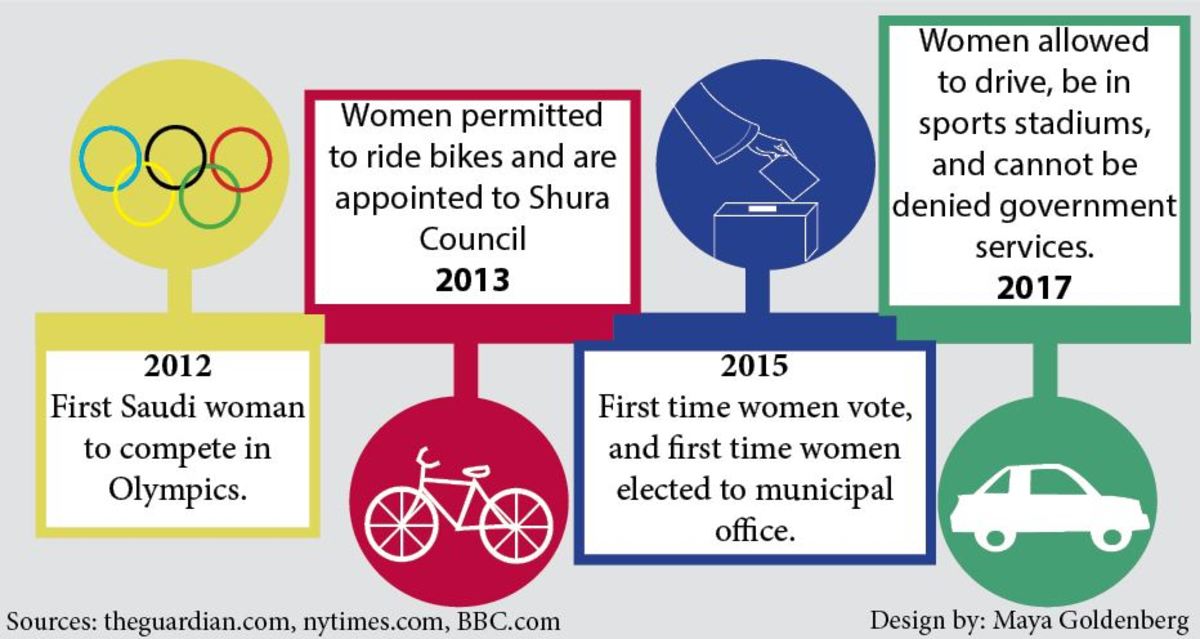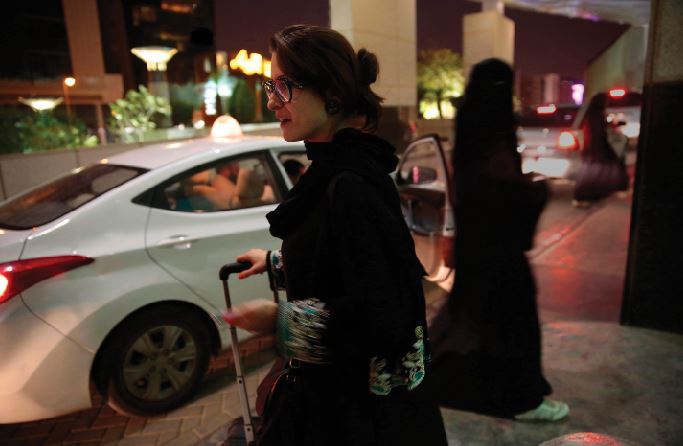Saudi Women’s rights lead to new experiences
DARING TO DRIVE. Since women can not drive, it is very common for them to use driving services and ride apps. Now that women can get behind the wheel in June, Uber and a Saudi taxi app are hiring women to be drivers. So far, the Saudi app has hired 1,000 women.
IN THE MONTH of October alone, Saudi Arabia has made two decrees regarding women’s rights- women will be allowed to drive in June 2018 and they will be permitted in sports stadiums in 2018.
To some Saudi Arabians, reform is moving very quickly, but to Westerners, the reforms are not happening quickly enough. Tom Gaffigan, an SHS English teacher, has his students read a New York Times article about Saudi women every year.
“Women in Saudi Arabia make the case that they are the best judges about how quickly change happens and whether or not they are repressed,” said Gaffigan of the meaning of the article.
His point reminds us that it is very difficult for Westerners to see parts of Saudi culture without Western ideals influencing judgment. The fact remains that Saudi women are not equal to men. those who do not hail from the Sunni country should try to understand that every country should progress in its own time, at its own pace, and on the terms of its people, not those of other cultures.
Guardianship System:
The guardianship system requires a woman’s father, brother, husband, or son to be her guardian and make decisions regarding her life.
The government necessitates the permission of a woman’s guardian for certain things. For example, marrying, traveling, applying for passports, and leaving prison, are some things that fall into this category.
However, there are no laws barring private businesses from requiring such permission… some workplaces order it from their female employees.
April of 2017, King Salman– Saudi Arabia’s leader –announced that “women should not be denied access to government services because they do not have a male guardian’s consent unless existing regulations require it.
“Government agencies will have to provide a list within three months of procedures that require male guardian approval,” said Human Rights Watch.
People are still left wondering when this decree will be enforced.
Dress:
All women are required to wear an abaya and headscarf when in public, according to The Economist. An abaya is a loose, modest piece of clothing, comparable to a floor-length dress.
“Abayas in colors are starting to proliferate in Jeddah, the less conservative port city in the west, but in Riyadh [Saudi’s capital] a non-black abaya worn in public still invites scowls from strangers,” said Cynthia Gorney, whose visit to Saudi Arabia was published in National Geographic.
Segregation:
In Saudi Arabia, there is a divide separating men and women who are not relatives. Checkout lines, restaurants, and some malls are segregated.
“All restaurants serving both men and women have divided eating areas. One [is] for ‘singles,’ which means men.
“[The other] one [is] for ‘families’ which means women, plus children and any men in their party who are close relatives,” said Gorney.
Even workplaces are segregated- dividing walls are put between male and female cashiers and businesses employing both sexes must have a women-only section.
Here, Saudi women report feeling “more ‘comfortable’. In the women’s area you can take off your abaya, relax,” said Gorney.

Sources: nationalgeographic.com, latimes.com, theweek.co.uk, economist.com, cnn.com, hrw.org, independent.co.uk







